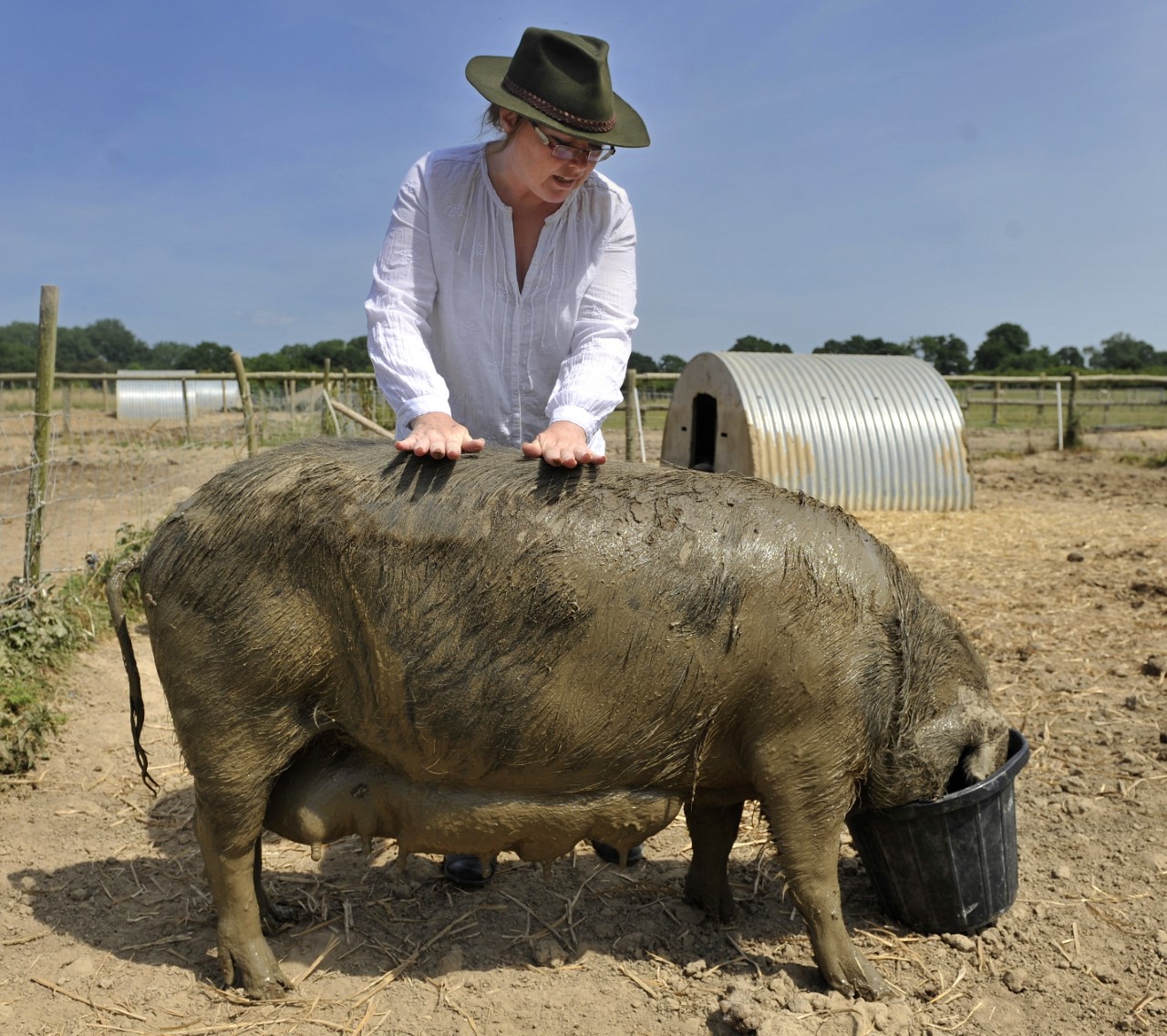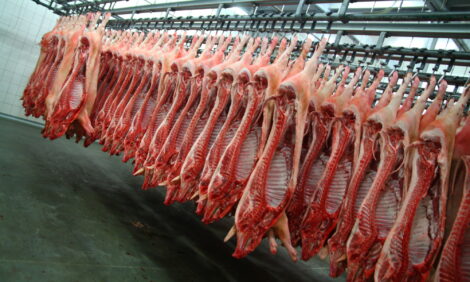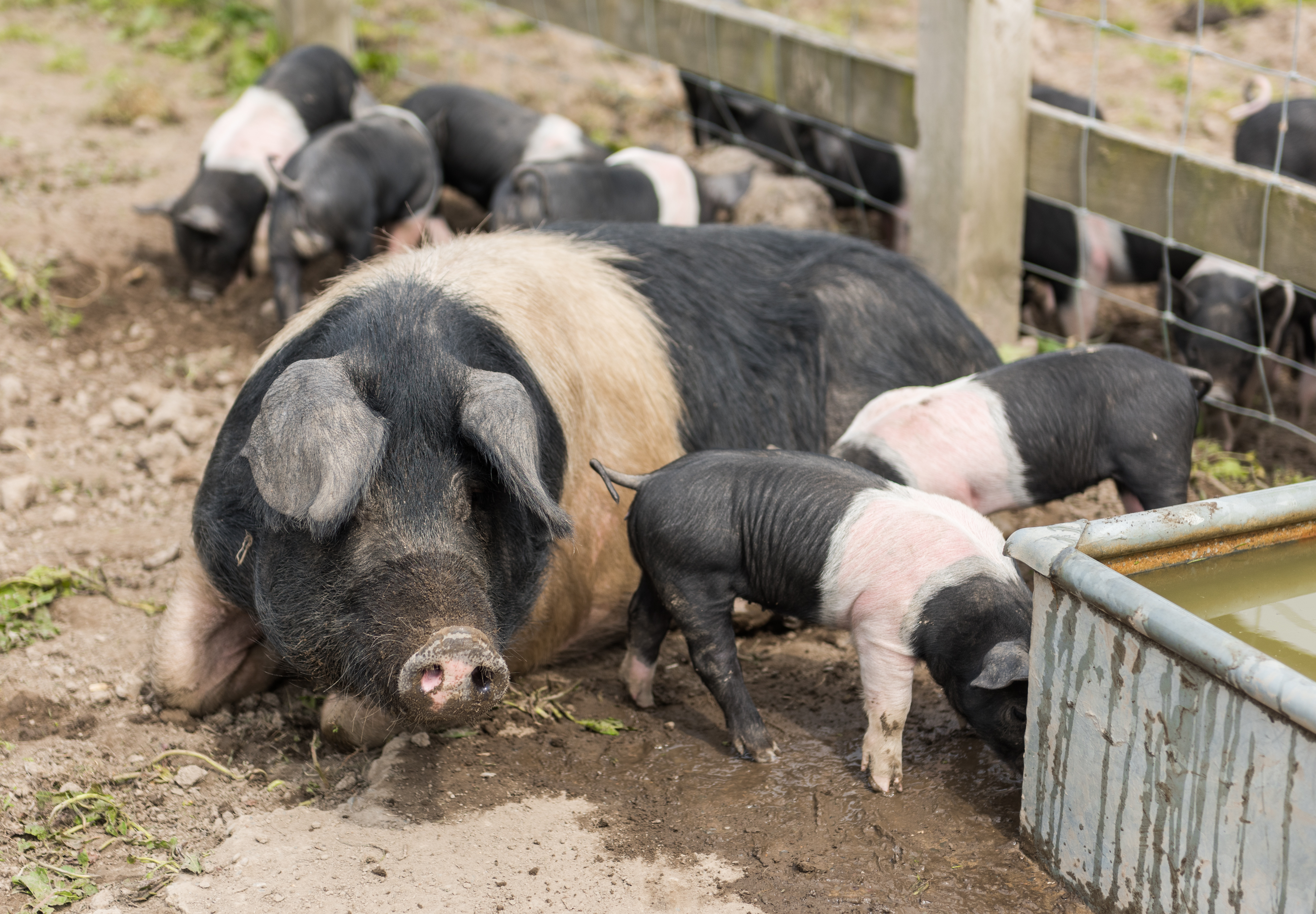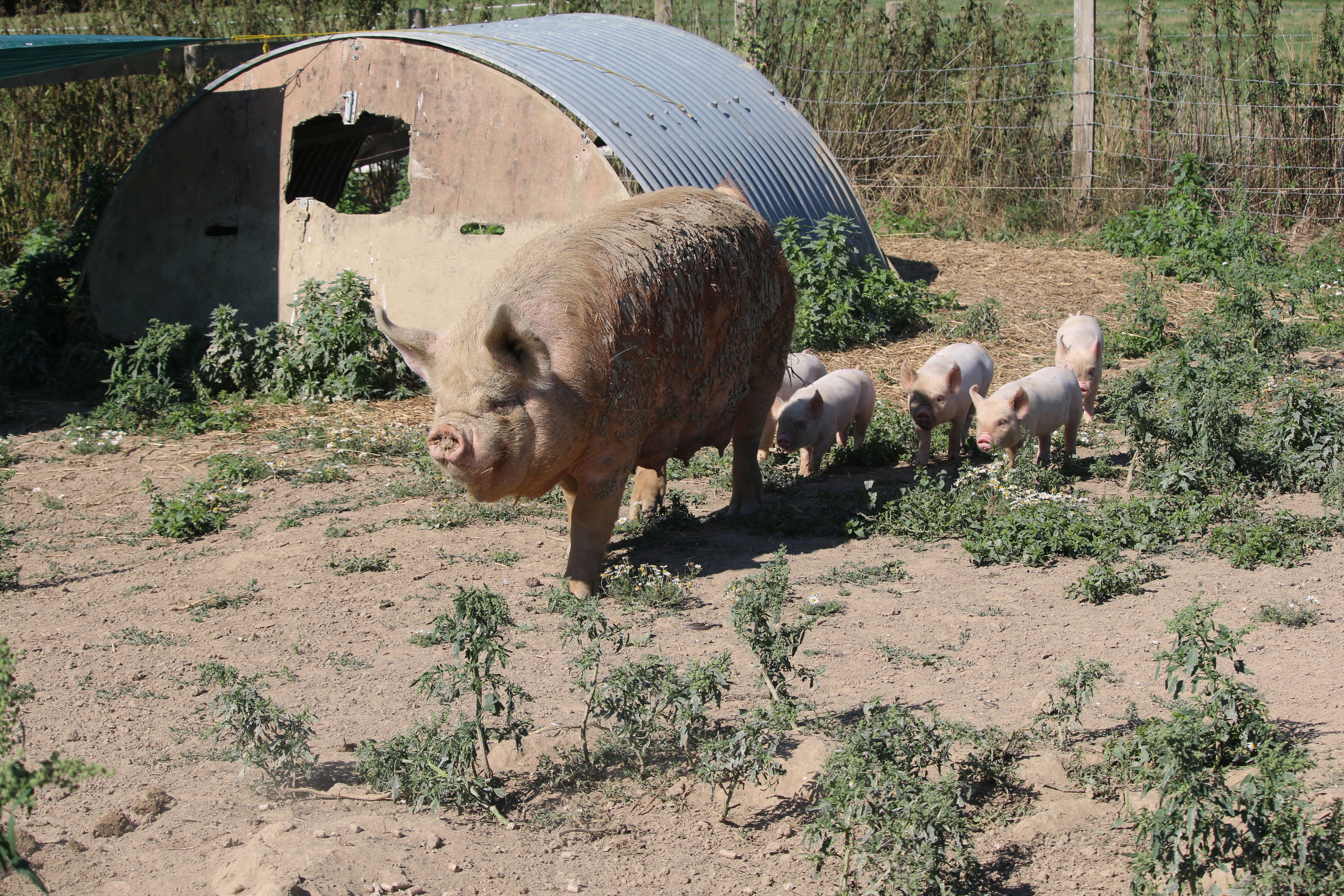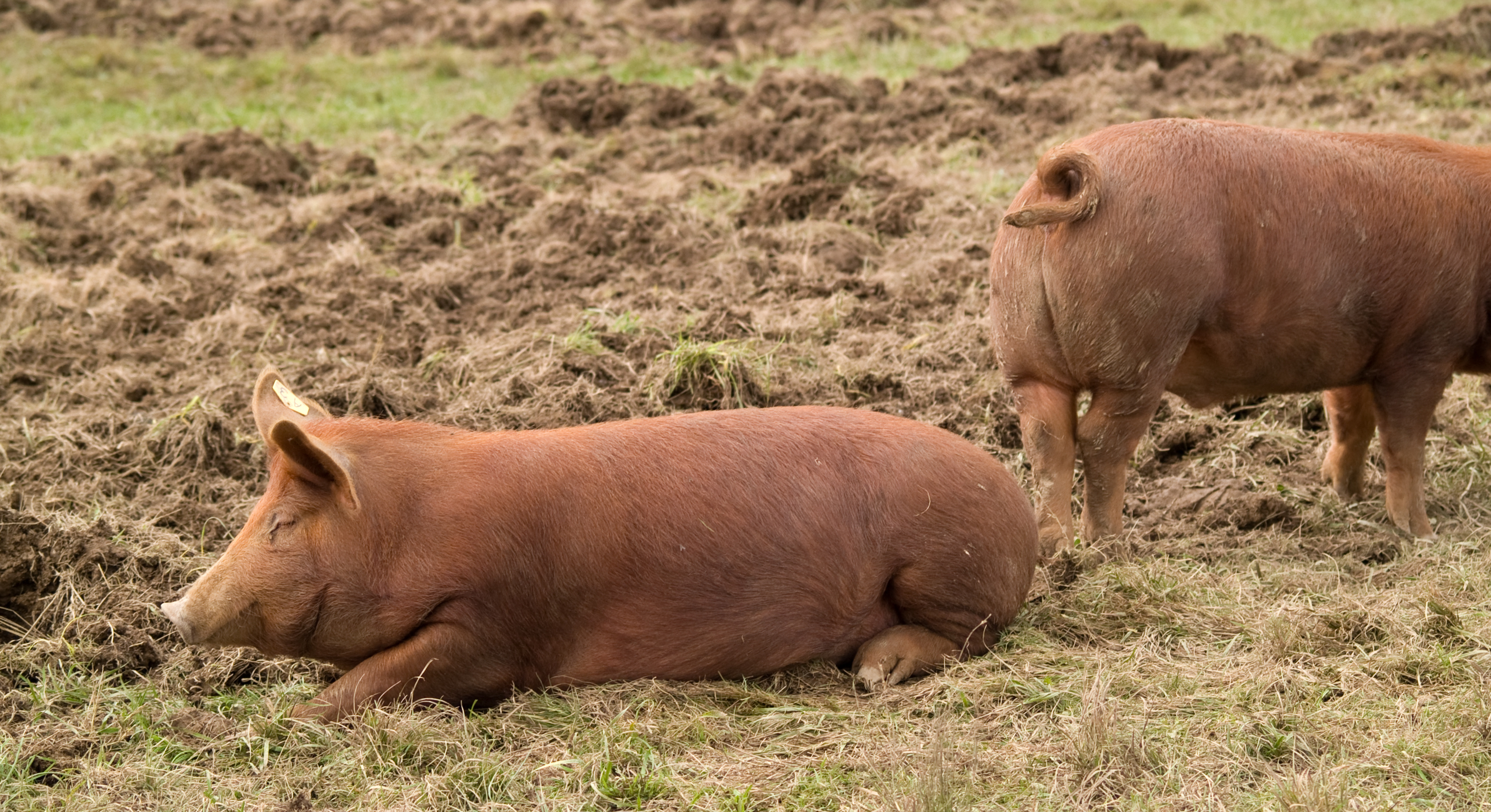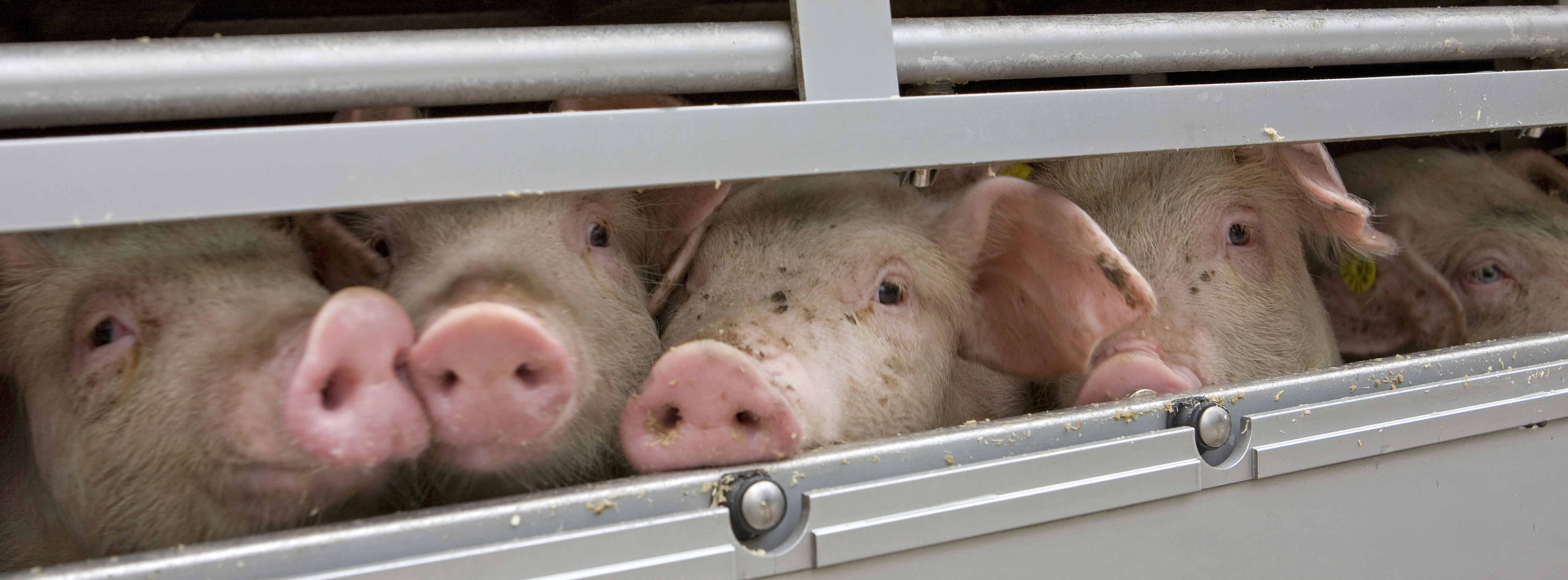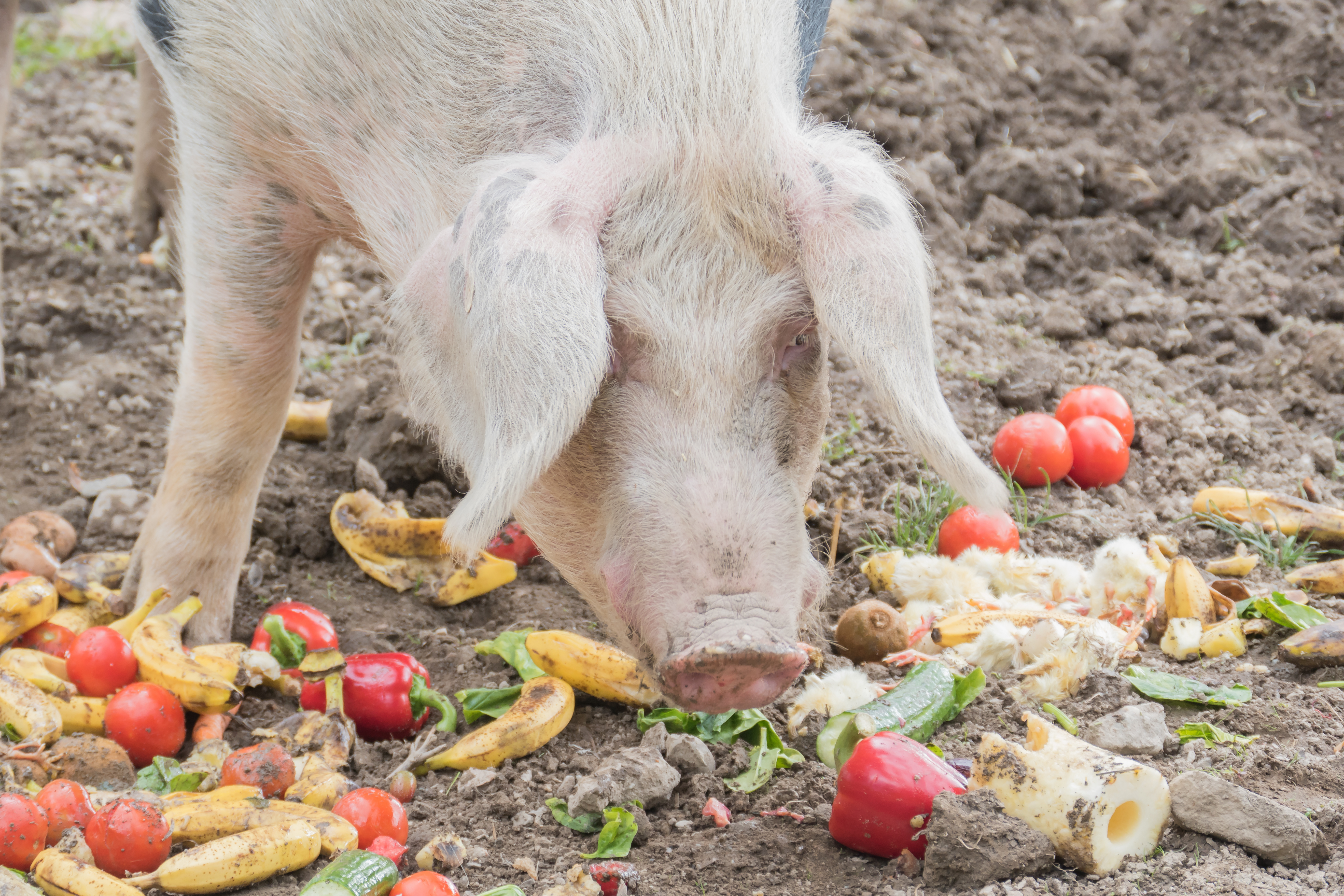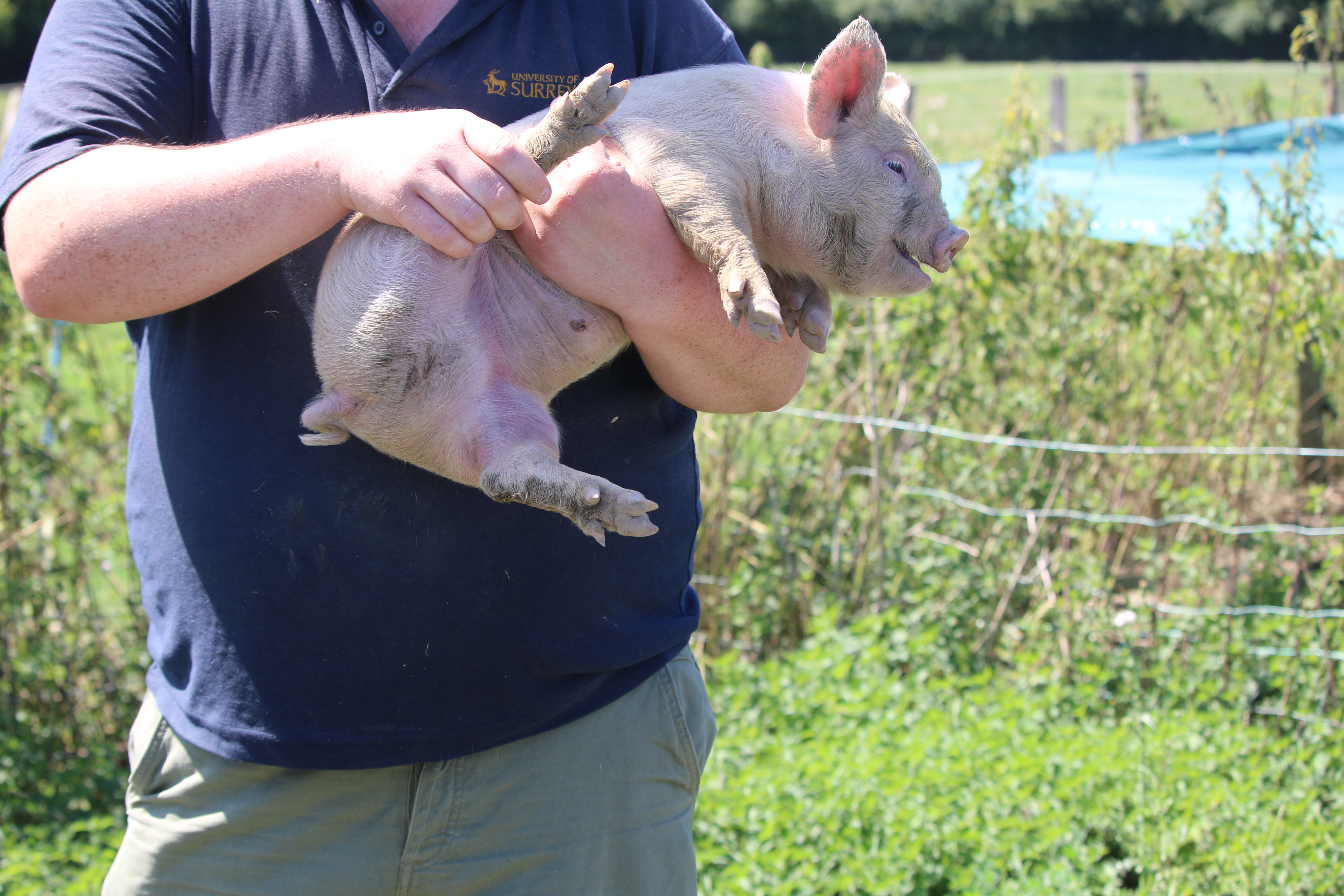



Small-scale pig keeping: can natural remedies match licensed medicines?
Licensed medicines and natural (or complimentary) remedies are big business in the veterinary world but, in reality, what is the difference between them when it comes to keeping your pigs healthy?Part of Series:
< Previous Article in Series Next Article in Series >
Small-scale pig keepers often use natural remedies as a first line of ‘treatment’. If your sow is little constipated, feeding a ripe banana or juicy fruits (not from the kitchen) can get her bowels going again. If your weaners have diarrhoea, a few green bananas (again, not kitchen waste) can help bind them up a bit. If some of your herd have what might be a viral infection, a nice fresh pineapple containing the enzyme bromelain, known to destroy infectious viral epitopes and which is reported to have anti-inflammatory properties, may help. Locally produced honey on a wound to offer natural antiseptic protection is also often cited for human use to prevent infections.
Do these home remedies effectively treat these pigs? Who knows? And therein lies the issue with natural remedies for treating disease. With the exception of the use of honey, there is no clinical scientific evidence on the validity that any of my methods work, and the scientific evidence for the use of honey is of “low quality”. We feel better after we have noticed an ailment and administered something to “treat” it but, in reality, we are doing nothing more than doffing our cap to the problem, and the chances are that if the pig recovers it was probably going to anyway.
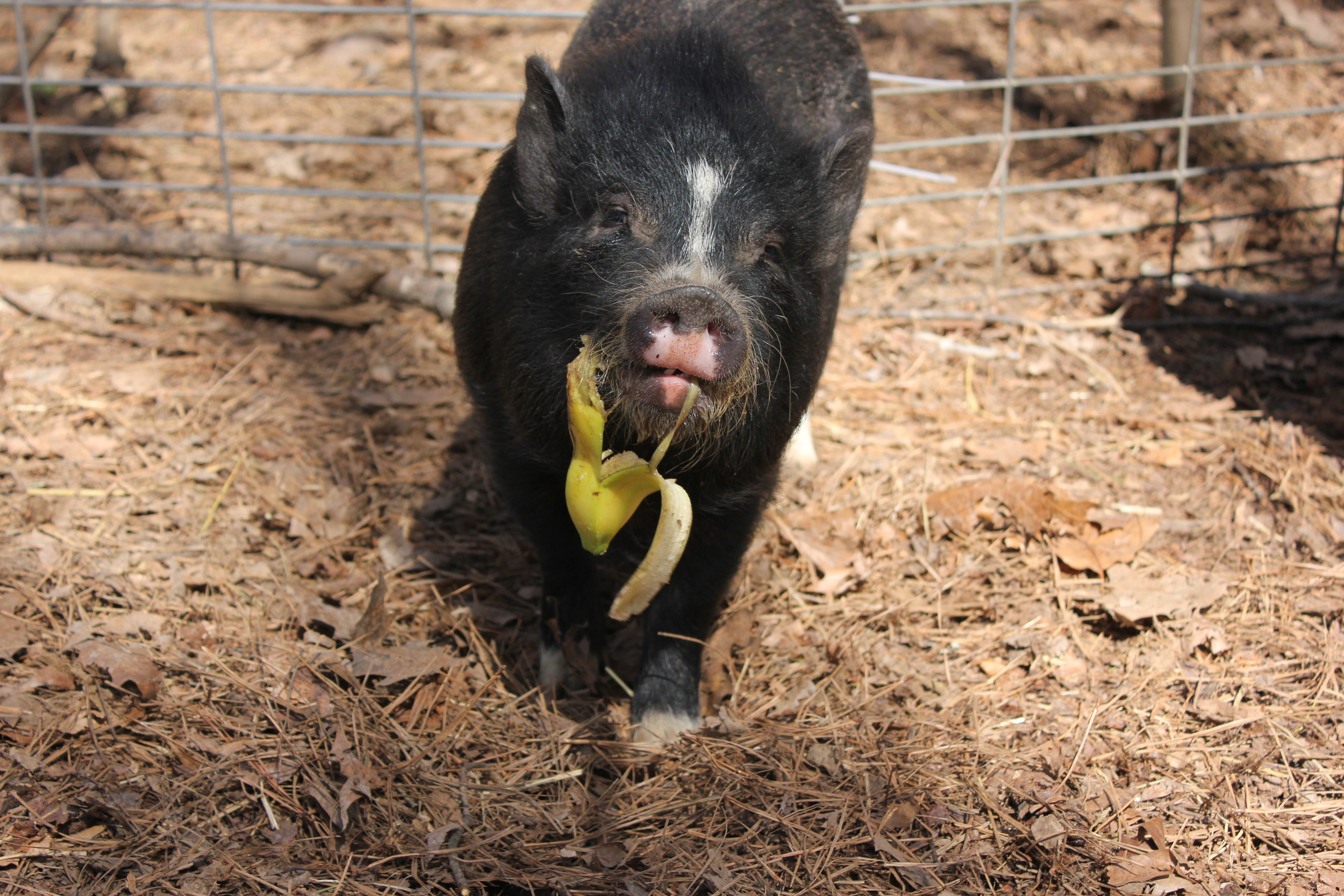
It should be noted that kitchen waste should never be fed to pigs as this is a biosecurity risk and may introduce foreign animal diseases.
The treatments above are homespun, but what about those that are sold in agricultural stores? According to the UK Veterinary Medicines Regulations, any product making veterinary medicinal claims needs to be licensed by the Veterinary Medicines Directorate. In the USA the Animal and Plant Health Inspection Service (APHIS) and the Food and Drug Administration (FDA) control product licensing. A licensed product has to clinically prove its efficacy and safety for all the animal species it is licensed for use in, using robust clinical trials to pre-defined quality standards. Similar systems are in place for most developed countries.
Natural remedies displaying “nutritional supplement or remedy” claims, that are not licensed, do not require the manufacturer to produce any proof or evidence of efficacy. They are sold off-the-shelf because they are not subject to controls and a veterinary surgeon or Suitably Qualified Person (SQP) is not required to make the purchase. That is not to say they are dangerous to the individual animal. If adverse reactions did occur and were reported, other laws kick in to prevent the sale. The danger is when people buy such products, assuming they perform a particular function, for example, de-worming, and in reality the product does nothing and parasite levels are building up, often unseen, inside the animal over time.
Livestock keepers may be swayed to think that a product performs a certain function by the use of terms such as “scientifically prepared”, “improves intestinal health” or “an effective alternative”, but rarely does it state what it is an alternative for, how health is improved, or what scientific methods have been used. Other statements, such as “organic system approved”, don’t mean that the product works for what you are being led to believe it does. It just means that it doesn’t contain an ingredient that contravenes an organic status – very, very different.
There are many natural products available for pigs: diatomaceous earth, herbal intestinal health products, pumpkin seeds, cider vinegar, rosemary, activated charcoal, sugar, garlic flakes; and there is a plethora of anecdotal evidence from livestock keepers, all over the internet, that state these products have worked successfully. What they all lack, however, are the results of a clinical trial proving efficacy.
One published clinical trial compared the efficacy of a licensed medicine (Group A), with an easily-purchased herb-based product (Group B), and an un-treated group (Group C). The infected animals were randomly divided into groups and each group assigned a treatment or no treatment. Each product in Groups A and B was dosed as recommended by the product information, and subsequently faecal samples from each animal were examined for the presence of worm eggs over a two-week period. The results shown in Table 1 clearly show the efficacy of the licensed medicine, with very low worm egg numbers detected. In this trial, providing no treatment at all resulted in lower faecal parasite egg numbers than treatment with the herbal product.
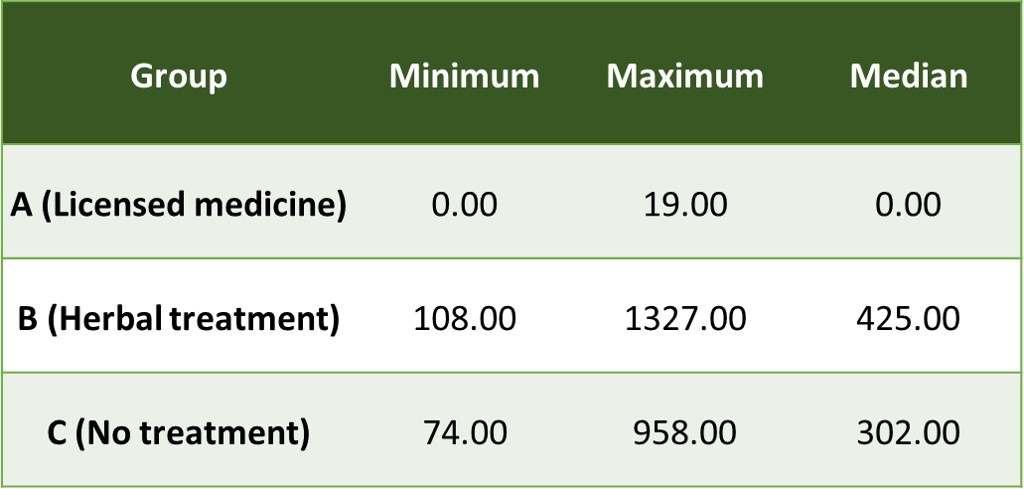
The use of non-medicinal products is now being scientifically researched, particularly in the pig and poultry industries. The use of pro- and pre-biotics, and the acidification of water are two concepts being explored as a prevention tool for pathogens, particularly Salmonella in pigs. Salmonella is a massive industry problem and due to the build-up of antimicrobial resistance and the directive to reduce antibiotic use, multi-pronged methodologies are now considered essential.
The best approach to pig health remains to feed a high-quality, balanced diet; de-worm; and vaccinate regularly with licensed products. It is also critical to keep husbandry and biosecurity standards high. If you wish to use fewer chemical-based products for parasite control, perform worm counts on your pigs’ faeces regularly, and use a targeted de-wormer strategically.







